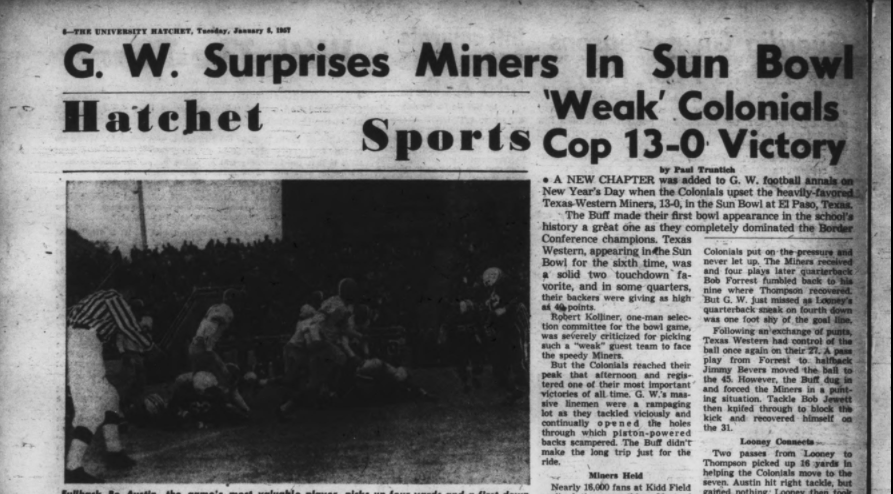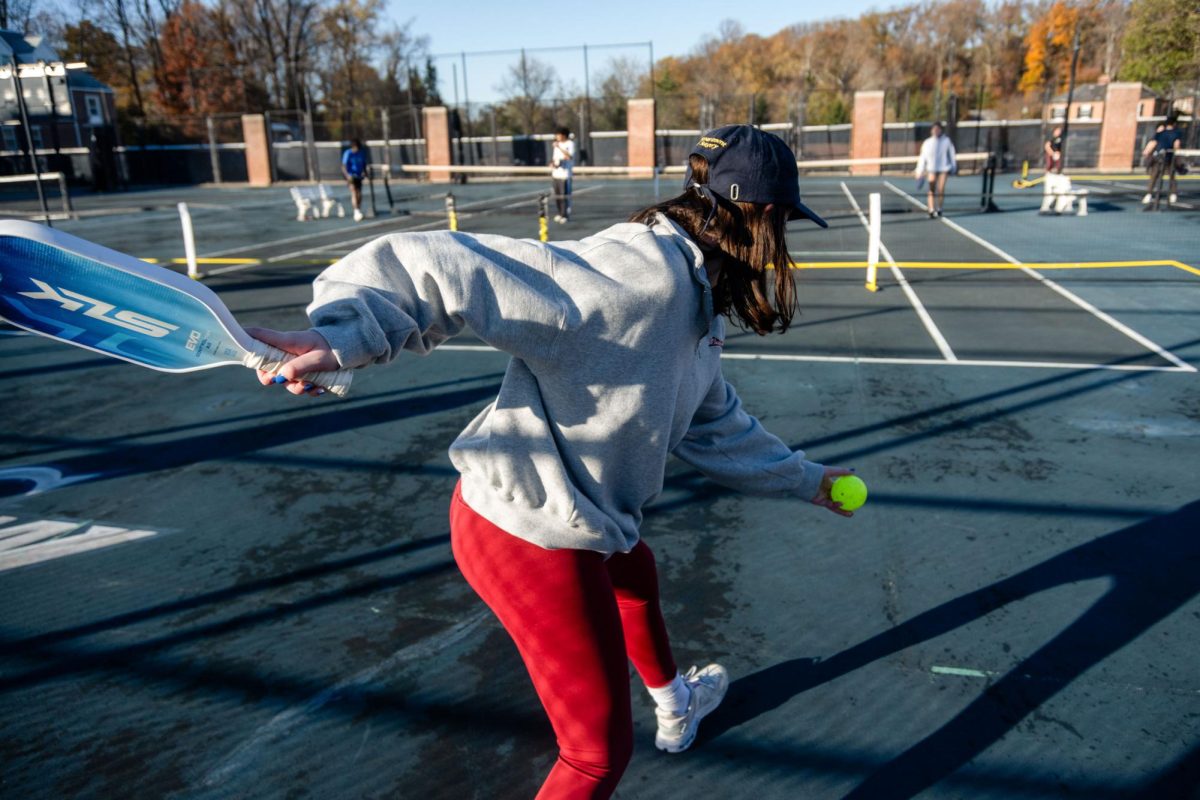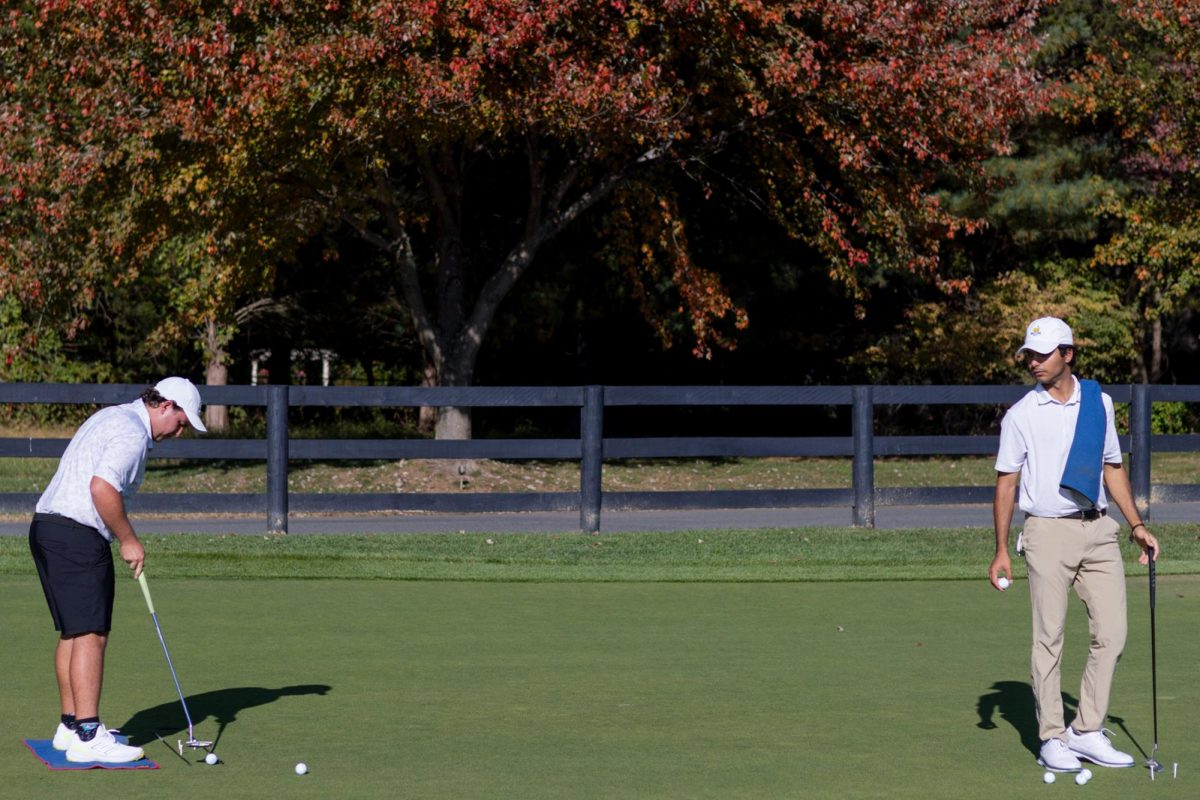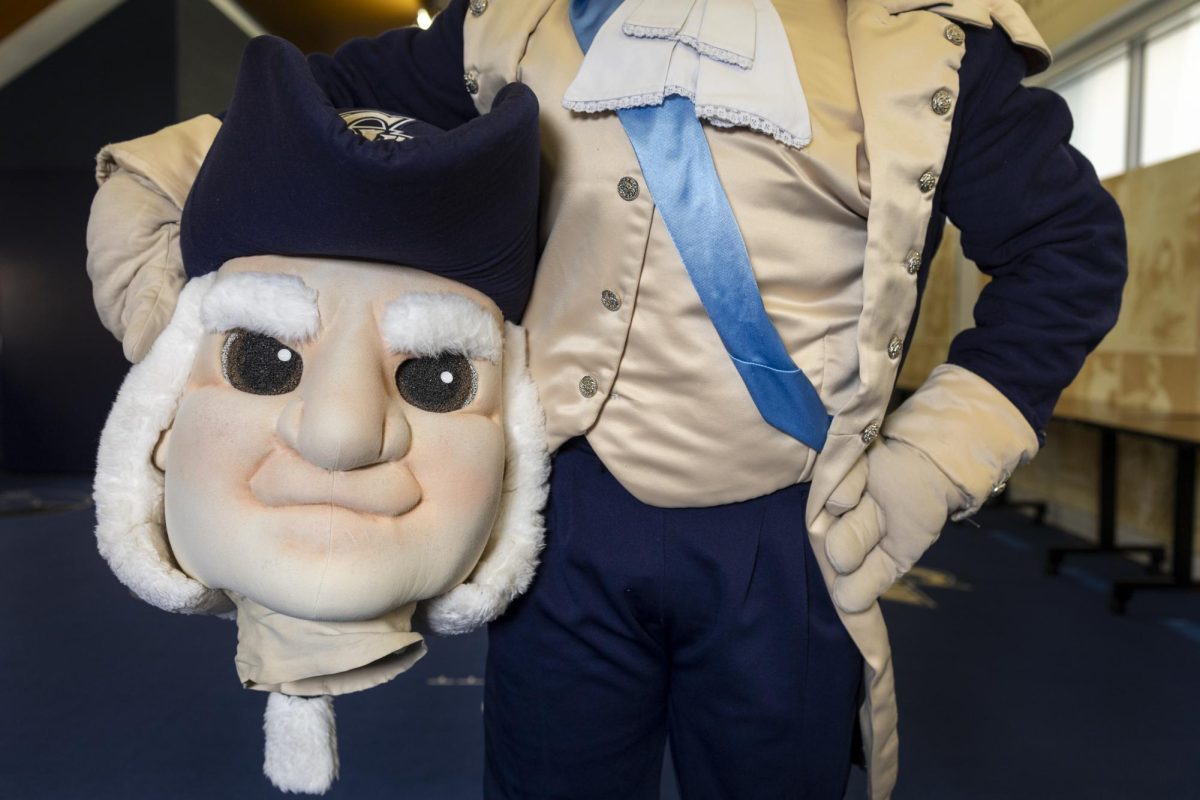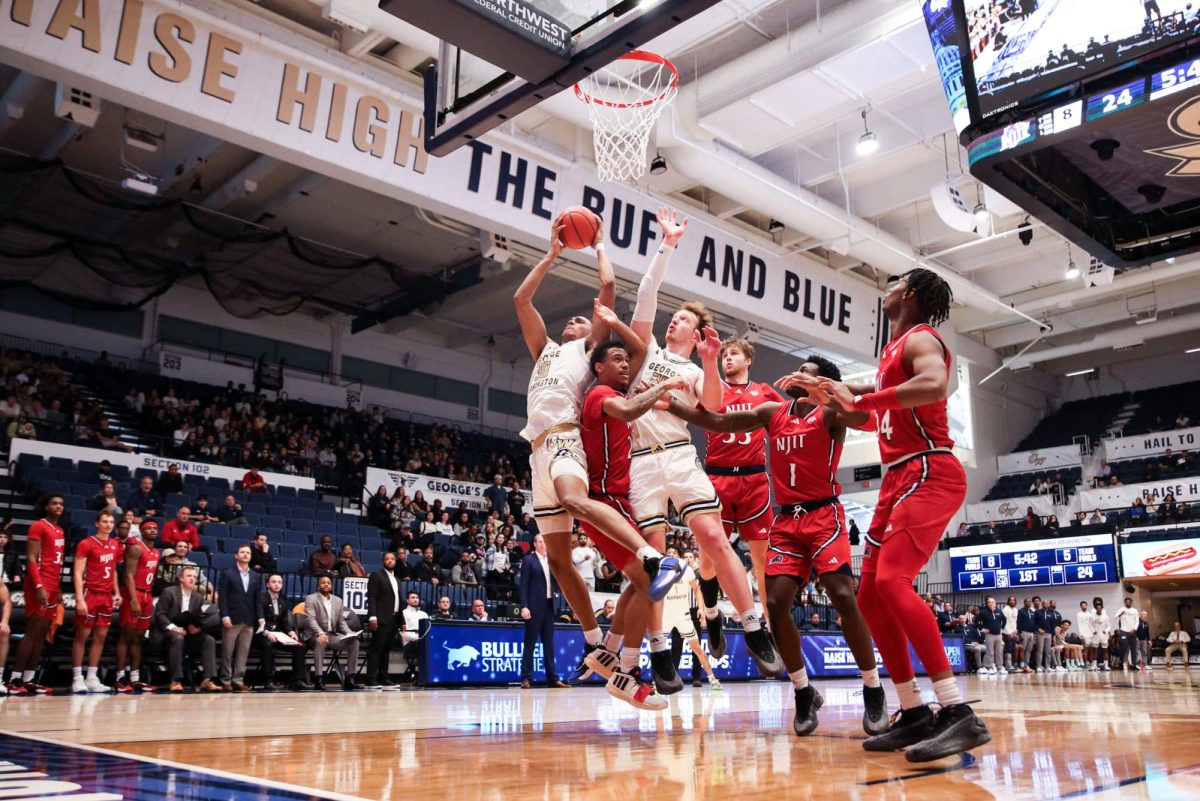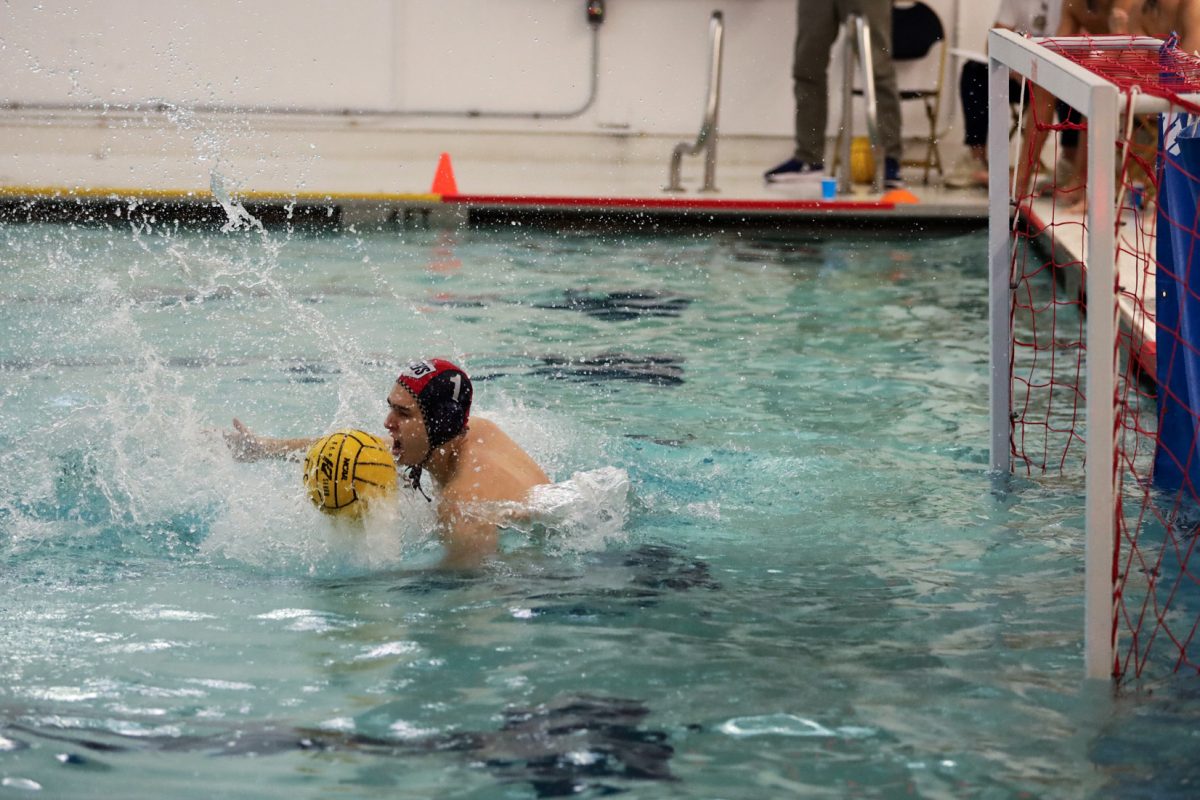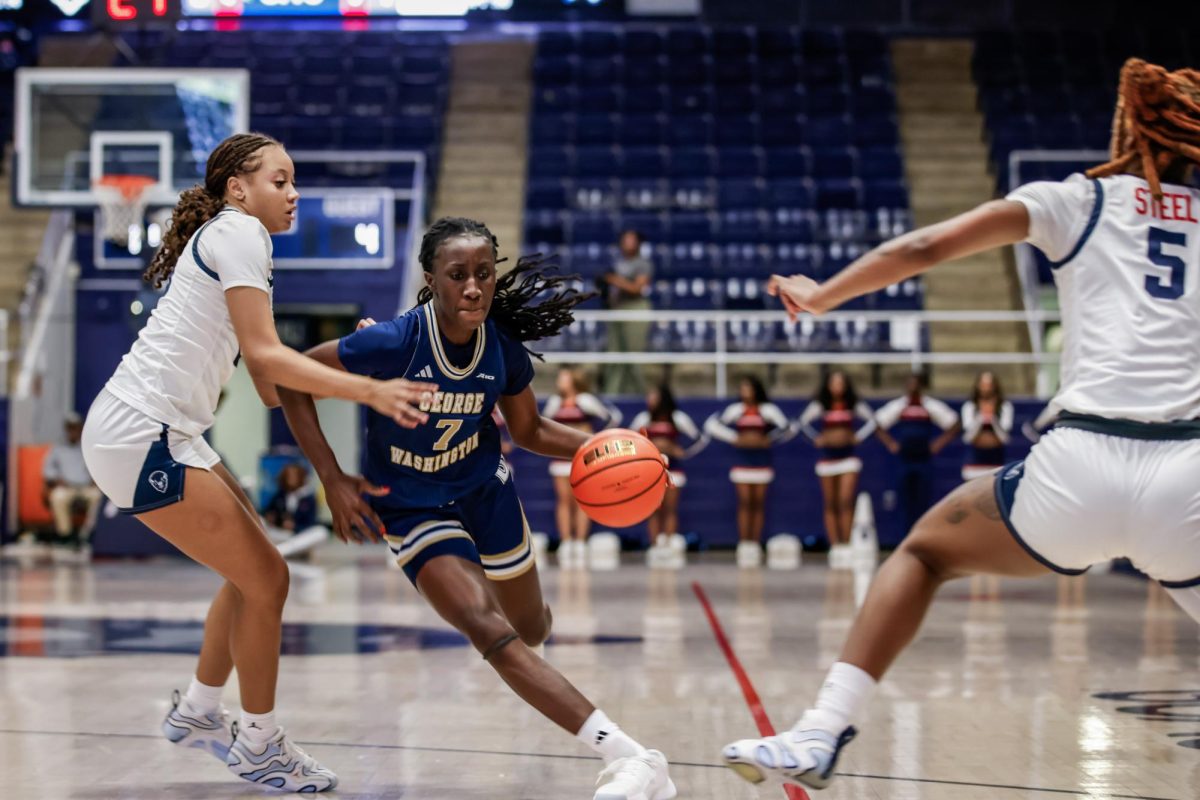In lieu of fall sports, we’re dusting off the history books and taking a look back on 10 of the best GW sports moments, ever. Here’s to hoping some old-fashioned nostalgia can keep us going until the restart.
No. 8: Football captures Sun Bowl win
Football capped a record-breaking campaign by defeating Texas Western at its first and only Sun Bowl game on Jan. 1, 1957.
The Colonials, led by head coach Eugene “Bo” Sherman, ended the year with a program-best 8-1-1 record. The team finished third in the Southern Conference with a No. 17 AP national ranking.
A strong rushing attack, which featured future NFL running back Mike Sommer, was the basis for GW’s success. Seven players ran for more than 170 yards on the year while the team attempted just 8.7 passes per game, completing 35.9 percent of them.
The Colonials started the season with three straight wins. GW dealt Miami University in Ohio its only loss of the season with a 7–6 victory to open the year. A 10–0 shutout over Furman and a 13–7 win against Hardin-Simmons earned GW a No. 16 national ranking heading into a clash with Boston.
A 20–20 tie with the Terriers pushed GW out of the national rankings, but the Colonials would bounce back the following week. A 40–14 win over VMI got GW back in the win column and returned it to the AP top 25 with a No. 17 ranking.
William and Mary was the Colonials’ next victim. GW escaped with a 16–14 victory that launched the team to its highest ranking in program history at No. 14.
GW suffered its only loss of the season in its ensuing game against West Virginia. The Colonials’ offense sputtered as the Mountaineers ran out with a 14–0 win that once again tossed GW from the national rankings.
After being shut out by West Virginia, GW responded by putting up its second-most points of the season against Richmond. The Colonials’ 32–6 win in their final home game of the year restored them to No. 18 nationally.
In the last game of the regular season, GW topped The Citadel 20–0. The win boosted the Colonials one spot in the national rankings and earned them a trip to the Sun Bowl.
GW became the first nationally-ranked team to play in a Sun Bowl, but the squad opened as 14-point underdogs to Texas Western at its home stadium, Kidd Field.
The Miners, who had lost just one game, featured a high-powered offense that scored at least 50 points in three games that year. Future Pro Football Hall of Fame inductee and Super Bowl III champion running back Don Maynard had 662 all-purpose yards in what would be his final year at Texas Western.
GW’s defense set the tone, holding Maynard and the Miners scoreless. The Colonials recovered three fumbles and intercepted three passes from quarterbacks Bob Laraba and Bob Forrest.
The Colonials came up empty on its first few drives, failing to score deep in Miners’ territory. They eventually broke through with less than a minute to play in the first quarter, when quarterback Ray Looney hit All-Conference wide receiver Paul Thompson for a 30-yard touchdown.
The game was on a knife’s edge at 7–0 in the third quarter when the Miners took them into the red zone. GW halfback Ted Colna came up big to preserve the shutout, intercepting Forrest at the Colonials’ 23-yard line.
Colna’s pick put the ball back in the hands of GW’s offense, which made no mistakes. Fullback Claude Austin, the eventual most valuable player of the game, ripped a 47-yard run down to the Miner’s 18-yard line as the quarter ended.
Running back Pete Spera, GW’s leading rusher during the regular season, punched the ball into the end zone from three yards out early in the fourth quarter to seal the victory.
Sherman left the team in 1959 after a 1-8 campaign. Sommer was drafted 16th overall in the 1958 NFL Draft by the then-Washington Redskins. He played on both sides of the ball and retired in 1963.
The Colonials played their final game on Thanksgiving Day in 1966, losing 16-7 against Villanova. Then-GW President Dr. Lloyd Elliott said the program lost $254,000 that year and the Board of Trustees voted to discontinue it Jan. 19, 1967.


